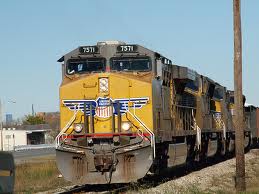HARRIS COUNTY, TEXAS 269th JUDICIAL DISTRICT – FELA lawyer, Gordon & Elias, LLP, represent a 46-year old railroad worker from Harris County, Texas, who was performing his duties as a machine operator helper while in the employment of Union Pacific, when he was caused to suffer physical injuries due to the negligence of Union Pacific.

ALLEGATIONS:
On around or about October 29, 2008, Plaintiff was helping the operator with the rail, by putting it in the middle of the track, by using an A-frame. The rail was sideways in the ballast, and Plaintiff had to line the A frame with the rail so it could go through. After Plaintiff lifted the A Frame four or five (4-5) times he felt an injury to his back. Plaintiff was performing his duties for Union Pacific when he was caused to suffer physical injuries directly caused by the negligence of Union Pacific. Plaintiff began his employment with the railroad in 1988 as a machine operator helper. He has been unable to return to work since the accident because of his injuries and limitations.
PLAINTIFF:
Plaintiff is an individual who resides in Texas.
DEFENDANT:
Union Pacific Railroad Company (“Union Pacific”) is a Delaware corporation doing business in the state of Texas.
DAMAGES:
Plaintiff is seeking the following damages:
1. Physical pain and suffering and mental anguish in the past and in the future
2. Lost earnings in the past
3. Future loss of earning capacity
4. Past and future medical expenses
5. Past and future physical impairment
6. Past and future physical disfigurement
7. Reasonable and necessary vocational rehabilitation services in the future
Plaintiff seeks recovery of reasonable and fair monetary damages for each element of damages described above.
COMMENTS:
Railroad workers who are injured on the job are not provided the prompt and certain relief afforded to injured workers in other industries by no-fault workers’ compensation laws. To recover for an on the job injury, railroad workers must prove their cases under the Federal Employers’ Liability Act (FELA), which was passed by Congress in 1908. This law requires proof that the injury to the worker was caused, in whole or in part, by the negligence of the railroad through the conduct of another railroad employee, agent, and/or contractor. Although in contrast to workers’ compensation laws the FELA requires a showing of negligence or fault, it employs the doctrine of comparative negligence, even in jurisdictions that have adhered to the common law doctrine of contributory negligence. Therefore, in FELA claims an employee who was himself somewhat negligent may, nevertheless, recover something for his/her injuries. Rather than deny recovery completely as would happen upon a finding of contributory negligence in jurisdictions still adhering to the common law contributory negligence doctrine (still applicable in several jurisdictions in ordinary, non- railroad negligence claims), FELA awards are reduced by the percentage the employee’s negligence is found to have contributed to his injury. Because of the differences between FELA cases and ordinary negligence cases in terms of the required proof and the effect of the employee’s own contributory negligence, courts have sometimes exhibited a reluctance to follow the letter and spirit of the law. The railroad industry itself has repeatedly sought Congressional action to amend, repeal or alter the FELA, seeking to substitute in its place a system similar to ordinary workers’ compensation claims. Congress has steadfastly rejected these overtures to repeal or amend the FELA, and in so doing, has reaffirmed its support for the wisdom of the law as drafted and as applied since its inception. The legislative history of the FELA and judicial decisions interpreting this law make it plain that Congress has always regarded the FELA as more than a compensation scheme for railroad workers, but also as an inducement to the railroad industry to promote safe work practices to reduce the number of injuries.